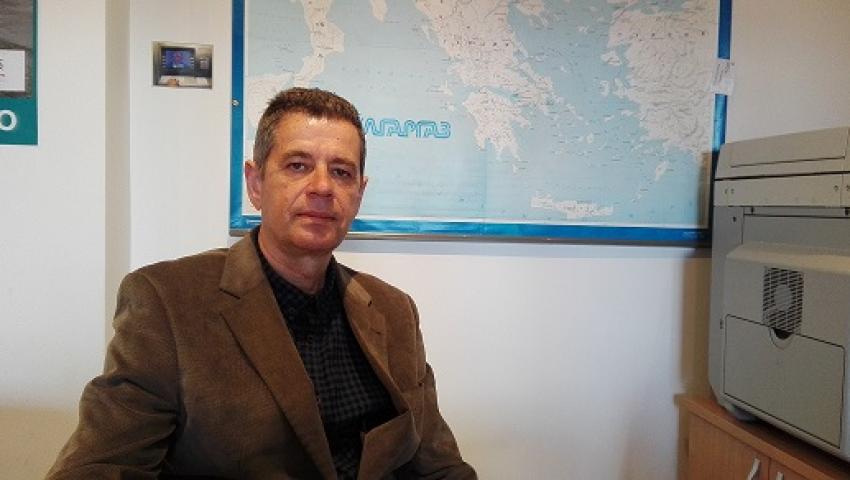Anton Ivanov: If the current framework of the power plants in the Maritsa basin falls away, we’ll talk about their closure

Long-term contracts are essentially a capacity mechanism. If we look realistically, we will see that this capacity mechanism guarantees life to two of the three plants in the coming years. In case we give it up, the most extreme option can be the import of electricity and the earlier closure of the plants in the Marishki basin. This was stated in an interview with 3e-news.net by Anton Ivanov from the Bulgarian Energy and Mining Forum. According to him, there are reasonable and quite applicable options for the development of the complex, but it is necessary for our country to present a clear vision in order to receive funding.
Mr. Ivanov, in view of the new realities caused by the "green deal", how do you see the future of the Marishki basin?
Economically, things are put in a way, or allowed to be put in a way in which the complex cannot have a long life in its current supply and production chain (coal production, coal processing and electricity production). There is no economic logic for the current model to last long. I am even skeptical whether it could reach 2030. If approached sensibly, we should have a gradual reduction of this production cycle in the complex, but a number of related questions arise. For example - what are the opportunities for replacement of production in the complex itself, what are the opportunities for maximum use of the assets that are there and what are the opportunities to preserve human resources and capital that are concentrated there. I believe that there are reasonable and very applicable options for the development of the complex, but it is necessary to present a clear vision in order to receive funding. We cannot finance this process on our own, and our refusal to present a reasonable plan means that we cannot receive funding. It has been mentioned many times that all mechanisms for a fair transition, for which there are financial resources, are bound by the fact that each region that engages in this problem must present a reasonable plan for its future - a plan to be supported. That is, the idea of throwing some money away without a clear goal is not shared in Europe.
That is, the chaos continues?
For the time being, this is most clearly stated in the European Commission's opinion on our 'Integrated Energy and Climate Plan'. It states: you have no transition plan. How much clearer to say this thing? It also says that Bulgaria relies heavily on the development of its ideas for funding from European programs.
In this context, what will happen to long-term contracts? Will they be able to be replaced by a capacity mechanism?
Long-term contracts are essentially a capacity mechanism. This, the so-called the current mechanism does not meet modern definitions of permitted state aid or capacity mechanism. At the same time, there is an existing capacity mechanism. If we look realistically, we will see that this capacity mechanism guarantees life to two of the three plants in the coming years. The difficult task for Bulgaria here is whether it will abandon this capacity mechanism and embark on the implementation of a new one, which is not at all clear whether it will be effective and whether it will fulfill the hopes placed on it. The question is whether we will close the currently applied mechanisms, and when applying the others we will get, say, in the most extreme version - imports from abroad. Because there is such a possibility.
And earlier closure of TPPs, perhaps?
To everyone. If the current framework of operation of the power plants is dropped, where we put all power plants under one denominator, we are talking about closing all of them, no matter how bad it sounds.
How do we get into the Green Deal?
We enter unprepared. Although the green deal is in fact an evolution of a much more mature process of transformation in the European Union, which began with the fourth energy package, called 'Clean Energy for All Europeans'. The "green deal" does not change anything of this concept, which was set in 2014, on which we worked during our presidency and in which we had a very active role. The green deal adds ambition, but does not change the character. The green deal demands ambition from member states, but avoids setting binding targets, at least for the time being. In order to demand ambition from its members, the green deal gives another space to link its components with economic, digital contemporary development. That is, when we look at these goals, we can realize that it is better to keep up with those who are entering the next level of technological development. Otherwise, it means keeping our role behind. From this point of view, I see the green deal as an opportunity, but only if it is realized. Only if it is well assessed through the prism of our capabilities for what we have the potential to develop it to the next technological level - digital industry, industries of the modern economy related to the circular economy and only then to think about the infrastructure of which it is part and energy.
What do you say means serious amendments to the National Energy and Climate Plan?
We are no longer talking about amendments to this National Plan. What we have received in response from the European Commission tells us: it is better to develop a new plan.
